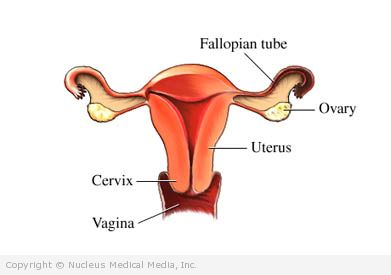Gonorrhea – Definition
Gonorrhea is type of sexually transmitted infection (STI).
Gonorrhea – Causes
Gonorrhea is caused by the bacterium Neisseria gonorrhoeae. It is passed during vaginal, oral, or anal sexual intercourse.
Gonorrhea – Risk Factors
Factors that increase your chance of gonorrhea include:
- Multiple sex partners
- Being sexually active and less than 25 years old
- Having sex without a condom
- History of having a sexually transmitted infection
Gonorrhea – Symptoms
Many people that are infected will have symptoms. Symptoms may appear 1-14 days after contact with an infected partner. In some cases, symptoms do not occur for up to a month.
People with gonorrhea may experience some, all, or none of the following:
In Men
- Discharge from the penis
- Burning sensation while urinating
- Tender or swollen testicles
In Women
- Burning sensation while urinating
- Abnormal vaginal discharge
- Abdominal pain
- Unusual vaginal bleeding
In Men and Women with Rectal Infections
- Anal itching
- Soreness
- Bleeding
- Painful bowel movements
Gonorrhea Complications
If gonorrhea is not treated, it can cause problems such as:
In Men
- Testicles — epididymitis, a painful condition of the testicles that may lead to infertility
- Prostate — Prostatitis, swelling and infection in the prostate
- Urethra — scarring on the inside of the tube that allows urine to pass out the body, can make it difficult to urinate
In Women
- Reproductive organs — due to pelvic inflammatory disease (PID), a serious infection that can affect fertility
- Infected in a newborn infant if you are infection during pregnancy
In Both Men and Women
Untreated gonorrhea can cause severe infections in:
- Joints
- Brain
- Eyes
- Heart
If you are diagnosed with gonorrhea, be sure to follow your doctor’s instructions.
Gonorrhea – Diagnosis
Two tests are commonly used to diagnose gonorrhea:
- Nucleic acid probe test — Discharge or urine is tested for specific acids. These specific acids indicate gonorrhea.
- Laboratory culture — A smear of the discharge is taken. It is sent to a lab. After two days, the culture is checked for growth of the bacteria.
Your doctor will likely also test you for the presence of other STIs including chlamydia, syphilis, and HIV.
Gonorrhea – Treatment
Your doctor will prescribe antibiotics. Some strains of gonorrhea have developed resistance to certain antibiotics. You and your doctor will work together to find an antibiotic that is effective.
It is important to take all of the medication as prescribed. All of your sexual partners should be tested and treated. Do not have sex again until you and your partners have completed treatment and no one has symptoms.
Gonorrhea – Prevention
The most effective way to prevent an STI is to abstain from sex. Other preventive measures include:
- Use condoms during sexual activity.
- Have sex with only one partner who has sex only with you.
- Have regular checkups for sexually transmitted infections.
Some other barrier methods of contraception may provide some protection. Talk to your doctor about your options.

